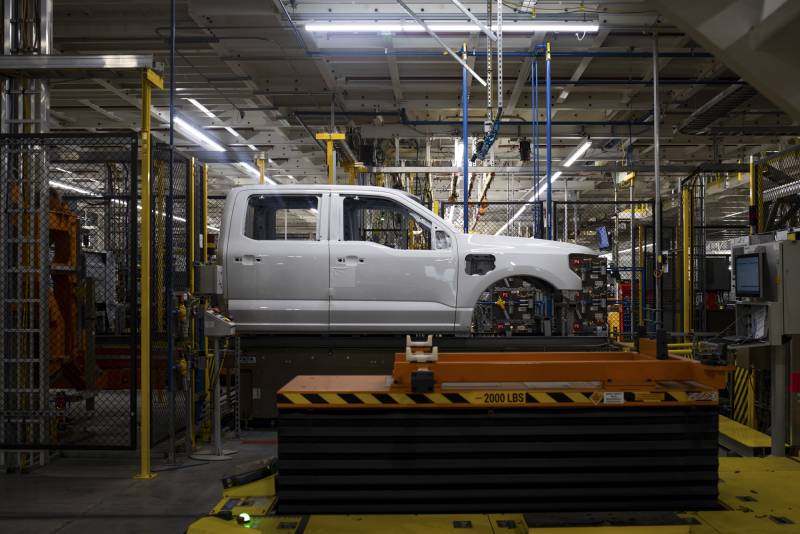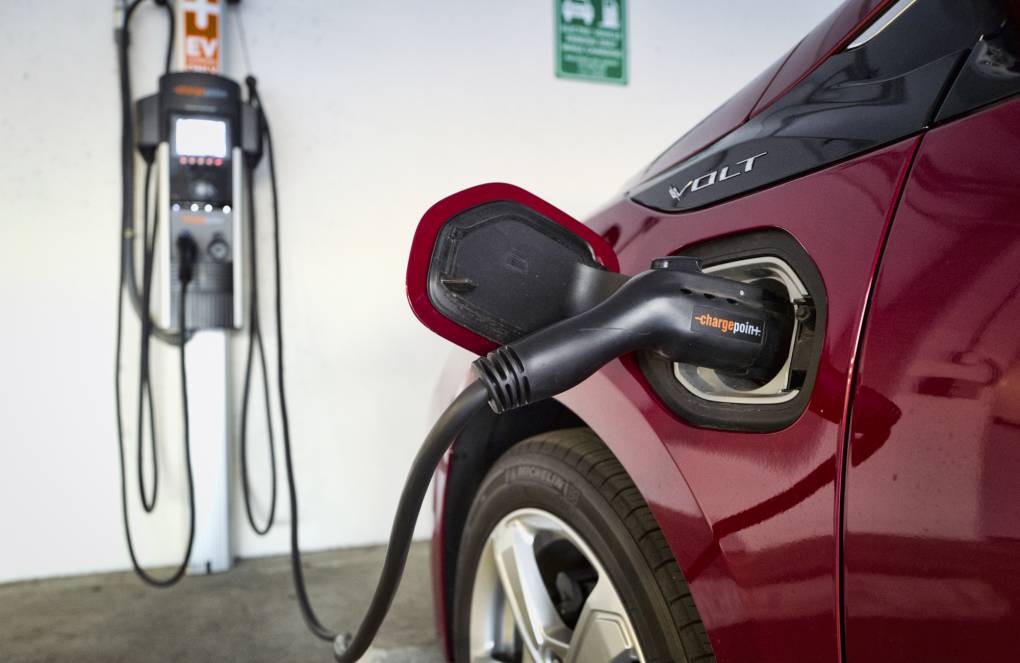“Transportation electrification is rapidly unfolding,” David Hochschild, chair of the California Energy Commission, said in a recorded video announcement.
Nationally, an estimated 1.2 million electric vehicles were sold in 2023, which is also a record, according to Kelley Blue Book.
The pace of California’s transition matters because it is far above America’s leader in sales. A rapid transition to electric vehicles is also key to slashing greenhouse gases responsible for climate change.
When originally introduced, Ford’s electric F-150 Lightning was so popular it had a three-year waiting list. But in January, the company said it was cutting production at its Rouge Electric Vehicle Center in Dearborn, Michigan, from two shifts to one, with some workers transferred to factories assembling gas-powered cars. Sales of the electric truck were up 55% in 2023, and Ford projected “further growth for 2024” but said it was making the changes to better meet customer demand for its pickups.
Daniel Sperling, director of the Institute for Transportation Studies at UC Davis, cautioned about reading too much into the slowed-down production of the Ford F-150 Lightning. One interpretation, he said, is that the pickup truck might just simply not be the right product, calling it a “retrofitted vehicle” in which “they just pulled out the drive.”
What’s more, there could be broader financial reasons for the F-150 Lightning slowdown. Sales of all cars slowed last year, and legacy automakers faced cash flow challenges and a strike from the United Auto Workers union.
“They’ve got financial challenges, so if they can come up with an excuse to slow down their investments, they’re going to do it,” Sperling said. “But every one of them is just delaying. Not one of them is canceling.”
Hertz said it was selling its 20,000 electric car fleet earlier this year. In an interview with The New York Times, Hertz Chief Executive Stephen Scherr blamed price cuts by Tesla for lowering the resale value of the cars and added that they were more expensive to repair and more likely to be involved in collisions.
Last year, sales by Tesla, by far the leader in electric vehicle sales, sold 230,589 cars, up from 185,090 in 2022, according to the California New Car Dealers Association. But sales dropped in the year’s final three months to 47,592 from 52,782 over the same period the year before. Analysts say various factors, such as lower resale value after Tesla’s sticker prices dropped, may be at play.
One of the biggest problems facing electric car adoption across the U.S. — and the world — is the need for more seamless charging.
A lack of adequate public chargers has become a major impediment as customers begin to weigh electric cars as an alternative to gas-powered vehicles. To that end, the Biden administration is pouring some $623 million into charging projects across the nation, with California getting $168.5 million.
While California is meeting its goals for new electric car and truck sales, the state is projecting that it will need a much more robust electric charging network to support its ban on new gasoline-powered cars by 2035 and serve all drivers statewide.


